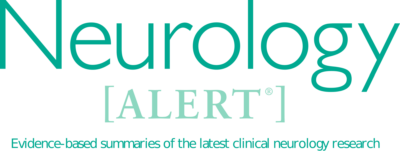
Neurology Alert
View Issues
-
Migraine Trigger or Prodromal Symptom: Which Came First — the Chocolate or the Craving?
Knowledge of the differentiation between the triggers for a potential migraine attack and the prodromal symptoms of an initiated migraine attack reveals strategies that decrease migraine disability. Recognition of migraine triggers allows for a modification of behavior to avoid precipitating an attack. Recognition of common migraine prodromal symptoms creates an early time window when rapid treatment enhances the therapeutic intervention’s efficacy.
-
Neurologic Toxicity with Immune Checkpoint Inhibitors
In a nationwide, multicenter, retrospective study of patients with neurologic immune-related adverse events related to immune checkpoint inhibitors, more than half of patients developed a chronic condition associated with a higher rate of severe neurologic disability and mortality.
-
DOACs Can Safely Be Started Early After Atrial Fibrillation-Associated Stroke
In ischemic stroke associated with atrial fibrillation, early restart of anticoagulation with apixaban one to three days after ischemic stroke, compared to late restart (seven to 14 days), there were no significant differences between the groups in the primary outcome — a composite endpoint including recurrent ischemic stroke, symptomatic intracranial hemorrhage, and systemic embolism.
-
Epilepsy and Cardiovascular Events
This large prospective cohort study found that older adults with a lifetime history of epilepsy were more likely to experience cardiovascular events (CVEs), and that enzyme-inducing antiseizure medications (EIASMs) may account for a significant portion of this risk. The findings suggest a potential causal link between epilepsy treated with EIASMs and CVE, highlighting the need for careful medication selection in epilepsy management.
-
Diagnostic Criteria for Paraneoplastic Neurologic Syndromes
This study evaluates the effectiveness of the updated 2021 Paraneoplastic Neurologic Syndromes (PNS)-CARE score in diagnosing PNS, highlighting significant improvements in sensitivity and specificity compared to the 2004 criteria, while also addressing limitations related to study design, diagnostic criteria comparison, and the need for further research in diverse patient populations.
